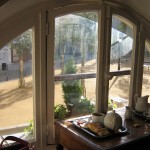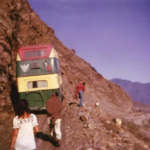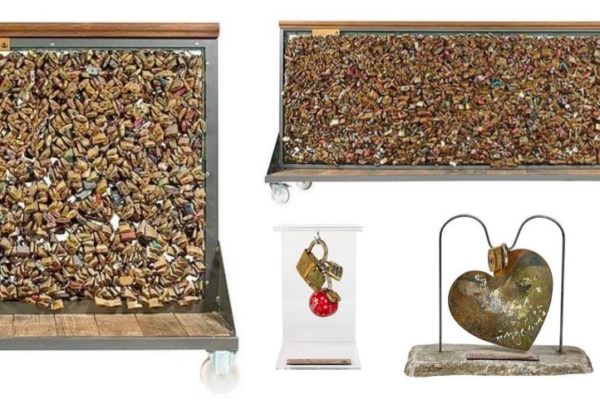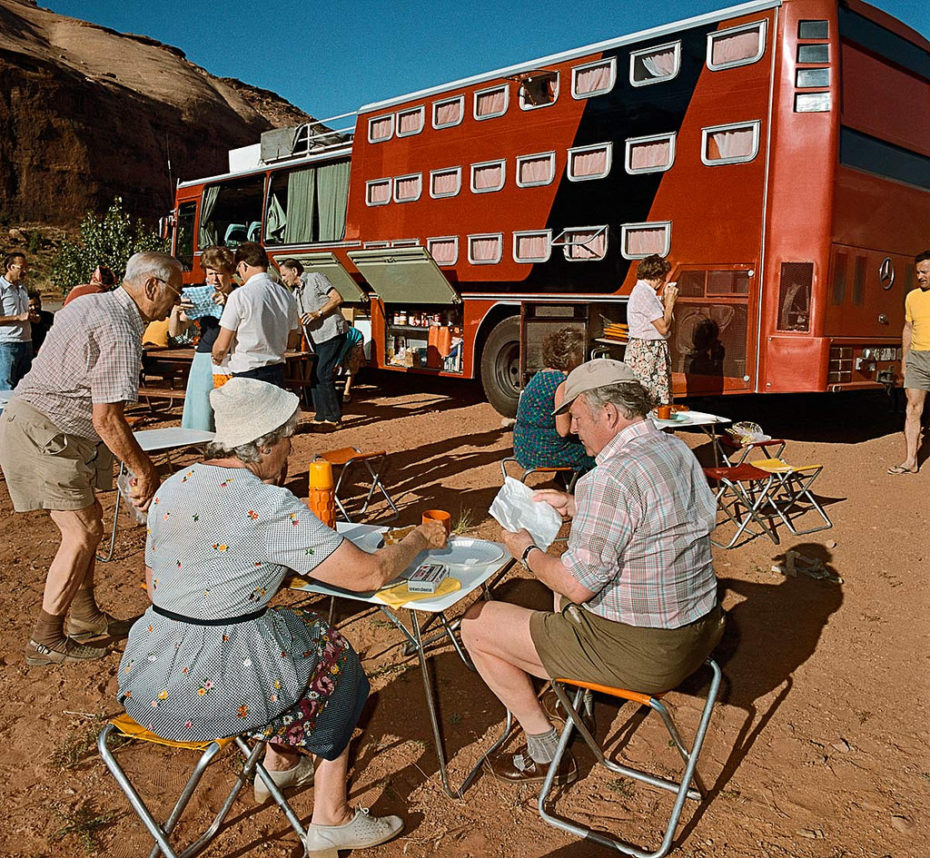
Is it a bus? Is it a hotel? Is it a mirage? Why, it’s the Rotel, of course! That’s a rolling hotel, to you and I.
The brainchild of Georg Holtl, German entrepreneur and one-time actor, Rotel had its first passengers in 1945, taking them on the short journey from Tittling to Passau. Then, in 1950, Rotel expanded to organised excursions and pilgrimages to places like Alottling and further afield, to Switzerland. Two years later, Rome would join the itinerary – tying in nicely with the boom being felt in the Italian capital post WW2, drenched in aperitivos and films stars who were flocking to Hollywood on the Tiber. Stops in France and Spain joined the roster soon after, and from 1957 Rotel was even taking its passengers on encounter trips for Pax Christi – a Catholic organisation that arose in France at the end of the second world war as a means to foster peace and reconciliation between France and Germany, and for the spiritual healing of Germans recovering from the effects of the Nazi era.
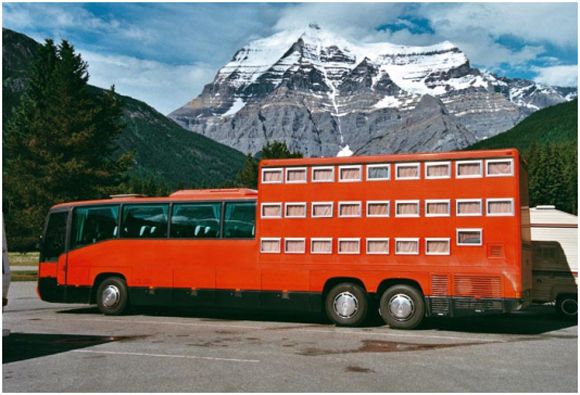
1959 saw the introduction of trailers that could be attached to the back of the buses – not a world away from the average family caravan, but not exactly the same, either.
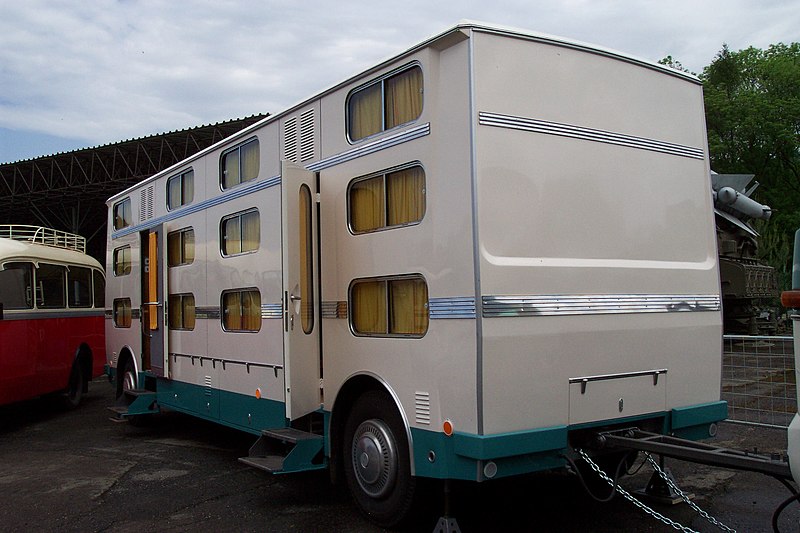
After all, these trailers weren’t sleeping a group of four, but twenty four. To get an idea of what these trailers were like, think of the rise of Japanese capsule hotels, where your bed is your room, and then add wheels.
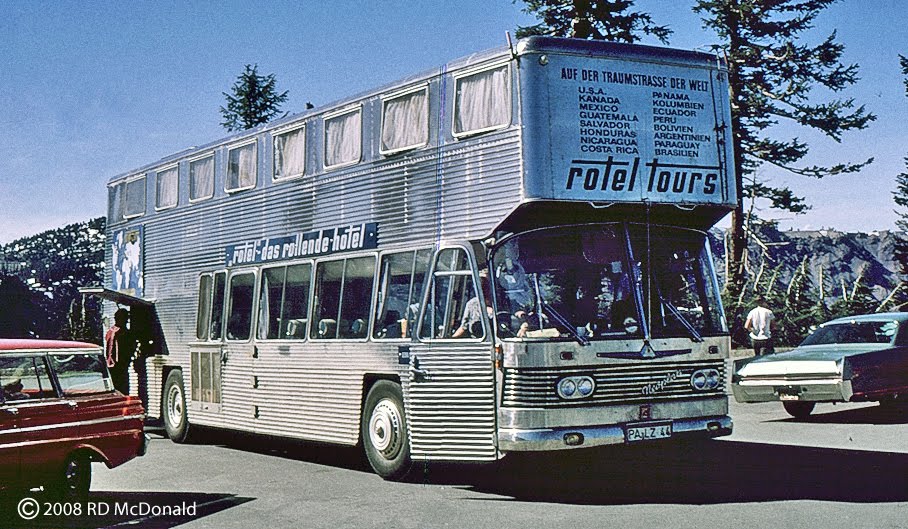
Throughout the sixties, Rotel expanded their horizons, taking passengers overland to India, the USA and Central America. In 1964, they journeyed through the Soviet Union, and five years later, in ’69, they managed the first successful coach crossing of the Sahara – 26 times the size of their native Germany, or to put it another way, roughly the size of the entire United States.
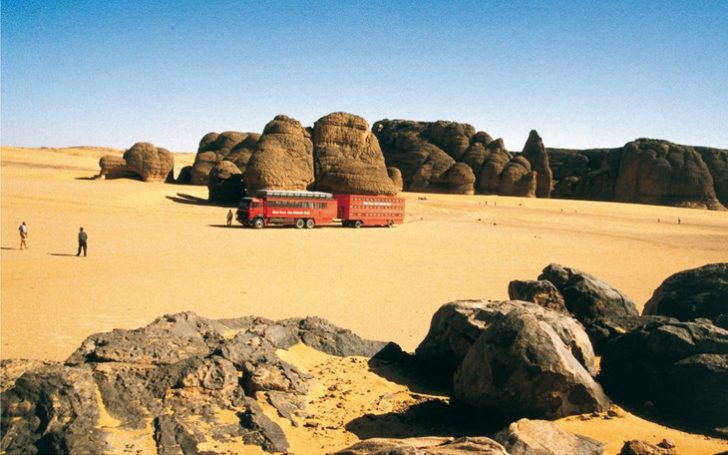
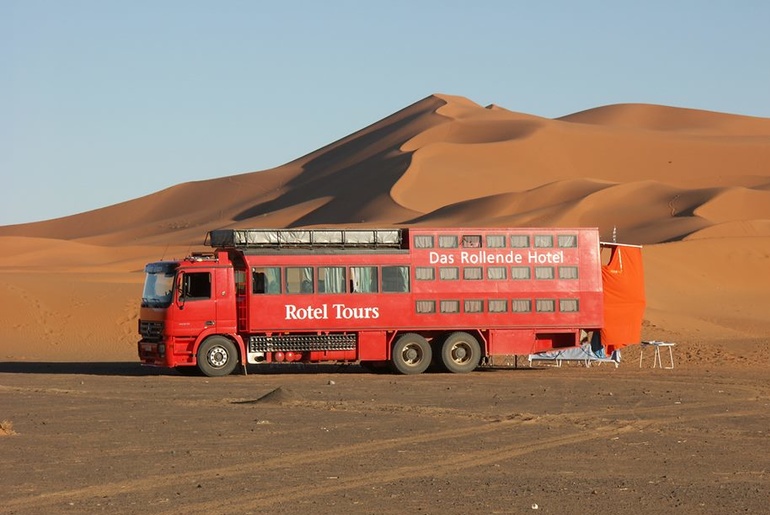
The seventies saw them take on Africa, Japan, and Australia, and it was around this time that Rotel began to take on the look familiar to travellers today – a quite literal hotel on wheels. Using buses that are typically customised Mercedes 0404’s, Rotels offer 24 upright seats for travelling during the day, and 26 small berths to the rear of the vehicle for the passengers to bed down in come night. Not for the claustraphobia minded individual, these ‘rooms’ are around 6 feet wide, 6 feet long, and 3 feet high – although there is the option to double-up and get twice the space. But even with the extra space, Rotels might not be for everyone.
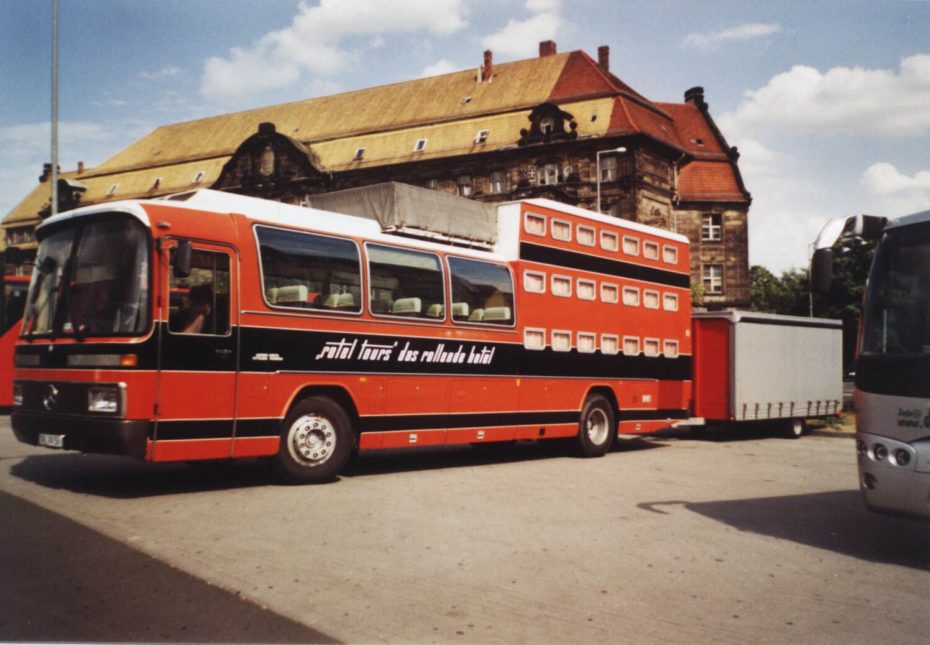
There is, alas, a vague feel of the hospital mortuary to it, with the berths stacked up on top of each other, and the entrance and exit coming in the form of a curtain at the foot of your bed. A healthy dose of ‘love thy neighbour’ may be required. There’s also the matter of the – ahem – spa facilities. Or lack thereof. There is one toilet onboard, much like your average tour coach – but there are no showers. Instead, the tours factor in stops at local campsites along the route and use the facilities there.
So, luxury hotels these are not. But what do they offer instead?
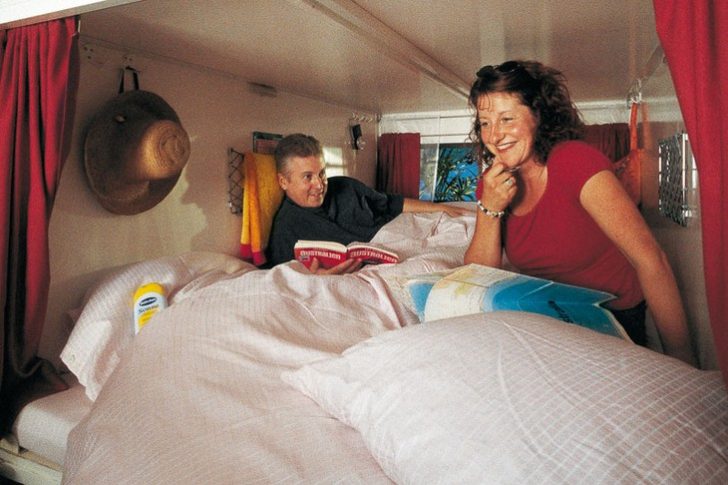
Well, breakfast al fresco, for a start. Unlike a traditional hotel, where everyone traipses downstairs half-asleep to the dining room for orange juice and stale croissants, on board the Rotel the path from bed to breakfast is quicker, and the view is much better. A drop-down ‘camp kitchen’ allows you to eat breakfast in a new setting every morning. Lunch break in the shadow of the Taj Mahal, anyone? And that’s one of the key draws for passengers who have adopted this style of travel – the ability to be constantly on the move, with none of this checking-in and checking-out malarkey. It’s just them and the open road. Or desert. Or mountain pass.
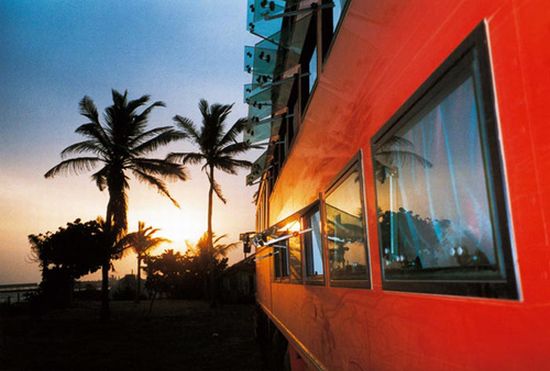
Immersion is key when travelling onboard the Rotel. Instead of driving right on by, keeping that plane of glass between traveller and terra incognita, the Rotel makes a point of stopping and allowing passengers to interact with the locations they travel to. None more so than in Namibia, where its red bus streaking across the landscape is a familiar sight to many of the village communities whose economies are supported by locally-bought produce and donations of water, food, and clothing.
And, perhaps more than anything, trips on board the Rotel are about fostering a sense of connection not only between you and the country through which you are travelling, but between you and the person in the bunk below or above you. Not one for the solitary traveller, Rotel tours thrive on groups that want to discover a destination together. Rather sweet, isn’t it?!
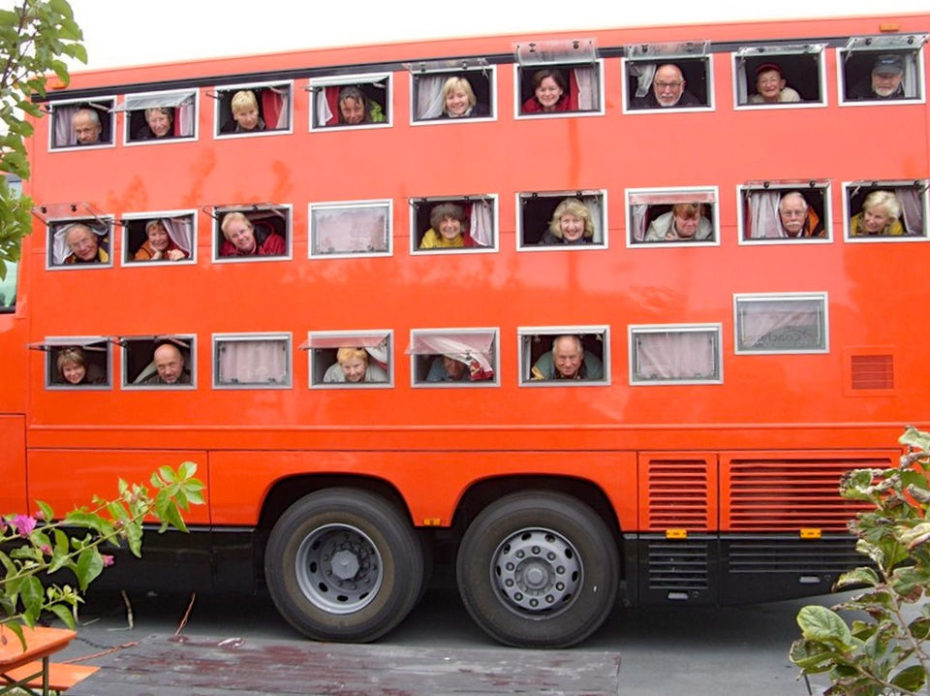
Whilst Rotel can be considered as the OG of the rolling hotel world (and has the bonus of being led by qualified tour guides), they’re not the only company out there offering capsule accommodation on wheels.
The Truck Surf Hotel is a converted Merdes Actros that allows a small group of passengers (there’s 5 bedrooms onboard) to travel throughout Portugal from June to October, and Morroco from December to March in some pretty cool digs – think light wood panelling, muted fabrics and a soft nautical vibe. There’s a living space, kitchen and bathroom onboard, too.


